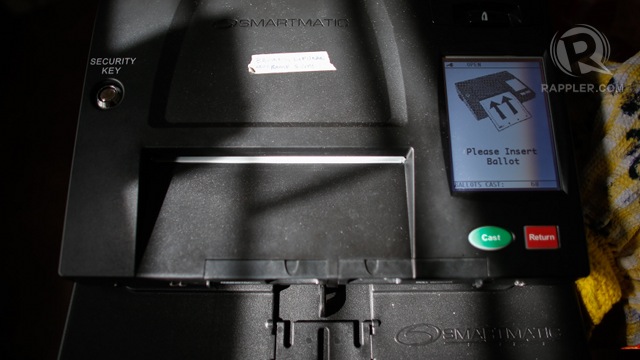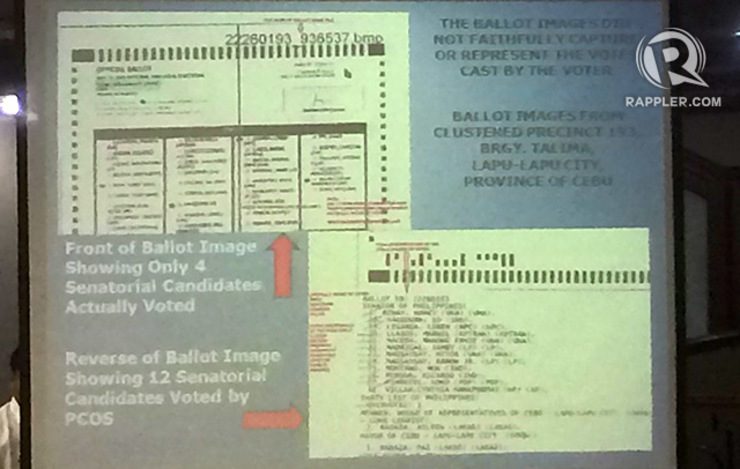SUMMARY
This is AI generated summarization, which may have errors. For context, always refer to the full article.

MANILA, Philippines – The reliability of precinct count optical scan (PCOS) machines again came under scrutiny on Thursday, September 18, prompting a senator to express his apprehension on funding the use of these devices for the 2016 national elections.
A recent manual recount of ballots from a contested Nueva Ecija precinct showed that 87 ballots contained votes for losing 2013 senatorial candidate Eduardo “Bro Eddie” Villanueva, but did not appear in the decrypted images of the same ballots scanned by the PCOS on election day. Thus, these votes were not counted.
At the hearing of the joint congressional committee on the automated polls on Thursday, the Commission on Elections (Comelec) said that the 87 ballots have been tampered with. But Villanueva’s camp denied these allegations. (READ: Comelec: Nueva Ecija ballots tampered post-election)
The issue of “digital lines” appearing on decrypted images of the ballots was raised as well, after lawyer and former Biliran Representative Glenn Chong presented evidence of these lines affecting the PCOS tally.
For instance, Chong showed the decrypted image of a ballot in Clustered Precinct No. 193 in Barangay Talima, Lapu-Lapu City, Cebu, which had marks for only 4 senatorial candidates, but the PCOS counted 12 marks. The extra “votes” counted by the machine were caused by a “digital line” appearing over the ovals of the third column of the ballot.

Senate Majority Leader Alan Peter Cayetano said that these issues should be resolved as soon as possible, given that Comelec asked for funds to upgrade existing PCOS machines and buy additional ones.
“Personally, I am not confident in funding an automated system that would not give us reliable results,” said Cayetano.
“How can we decide to reuse PCOS machines in the 2016 elections if we can’t assure our people that wala nang dagdag-bawas (there would be no vote-rigging anymore) caused either by people or the machines itself?” he asked.
While admitting that these issues “could happen,” Comelec Chairman Sixto Brillantes Jr insists that these are isolated cases, and did not adversely affect the results in past automated elections.
“The PCOS machines are not 100% perfect. There are certain glitches and deficiencies that can affect the results, but it’s not massive,” Brillantes said.
But Cayetano replied, “We’re going have a big problem if that would be the attitude of Comelec.” Cayetano said he wants to be certain that the current automated election system would be reliable by the time Congress passes the 2015 national budget.
As for the digital lines, Brillantes said that the poll body would fix the issue as soon as they get the funds from Comelec’s 2015 budget to refurbish and upgrade the PCOS machines.
Senator Aquilino Pimentel III , joint congressional committee chairman, also suggested to Comelec that they create a body – which he temporarily named the “Committee on Digital Lines” – to conduct a study on these lines and prevent it from affecting results in future elections.
Pimentel expects a report from the body by Christmas.
Comelec earlier announced that it would use the PCOS machines again for the 2016 polls. Existing machines would be refurbished and upgraded, while some 40,000 new units would be purchased. – Rappler.com
Add a comment
How does this make you feel?
There are no comments yet. Add your comment to start the conversation.